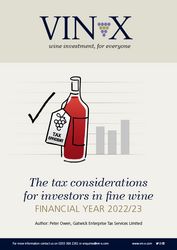The Chancellor’s hunt for cash as the UK slides into what looks like the deepest recession in 70 years, led to an Autumn Budget Statement that makes grim reading.
Commentary in the financial press included the following observation from the FT Advisor “With personal income allowances frozen, dividend income slashed, Capital Gains Tax thresholds cut down and no improvements on pension contributions and Inheritance Tax, Hunt is cleverly pushing more people into a taxable wealth bracket.”
The tax-free dividend allowance is being halved from £2,000 to £1,000 in April 2023 and then slashed again in April 2024 to £500. This means that those investors with a ‘modest share portfolio’ may pay tax for the first time.

Capital Gains Tax changes
Changes to Capital Gains Tax (CGT) have been caught up in the Chancellor's fiscal measures to find between £40billion to £55billion. Nobody could predict exactly in what way CGT would be used to top up the nation’s coffers, but some felt it was inevitable in the current environment, that this tax would be a tool the Chancellor would look to deploy.
The Treasury will have more claim on the profits made in the sale of those assets that attract Capital Gains Tax, such as shares held outside of a tax-efficient vehicle like an ISA, property, art and whisky in certain formats, from April next year.
CGT exemption slashed
The annual exemption amount from CGT will be halved from £12,300 currently to £6,000 from April 2023 and then slashed again in 2024 to £3,000. That’s a reduction of nearly 75 per cent of the tax-free amount, and for property investors particularly painful as the rate paid is higher.
Basic rate taxpayers currently pay 10 per cent on gains and 18% on second home property profits. Higher rate payers pay 20 per cent and 28 per cent respectively, a sizeable chunk of the value of the asset.
Given the current significant pressures on Buy-to-Let mortgage holders with rising interest rates, it will certainly feel like a two-pronged attack. Any looking to exit before next April have the challenge of a shrinking market of buyers and falling values. On top of which they may end up paying more income tax from April next year.
Wine investment and Capital Gains Tax
HMRC classifies fine wine as a ‘Wasting Asset’ and, as a consequence, it is generally exempt from Capital Gains Tax. This means profits made from fine wine do not attract this tax, subject to personal circumstances. This is one of the key attractions of investing in fine wine, alongside growth performance and stability during periods of volatility in financial markets.
Fine wine has seen average growth of 19.6 per cent in the last year, compared to 8.3 per cent in residential property (Halifax, 31.10.22) and average decline of -2.5 per cent in UK quoted equities (FTSE 100). For more information on current market performance see our latest Market Report. Wine investment performance is impressive and diversifying an investment portfolio with fine wine will mean an element of your capital remains outside of the tax net, whilst also providing a hedge to the erosive effect of rising inflation.
There are other tax benefits with owning fine wine which we highlight in our Tax and Fine Wine Report prepared by an independent tax specialist. You can download your copy here.
We always recommend that you discuss your personal circumstances with your accountant or tax advisor and remind you that, like all investments, fine wine values can go down as well as up. To find out more about the current opportunities in the wine investment market, speak to a member of our expert team on 0203 384 2262.


